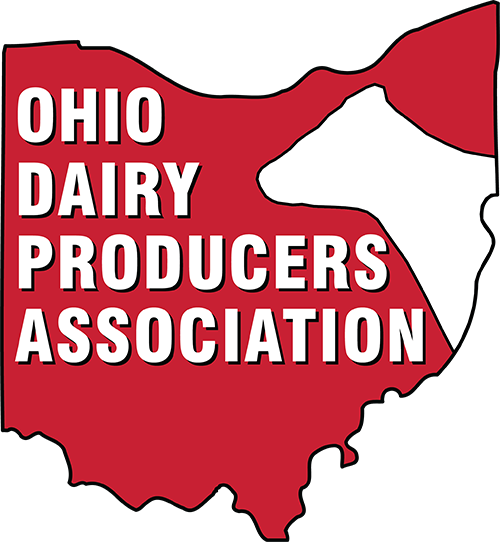Senate Bill 1 Passes
The Ohio Dairy Producers Association has been testifying and providing input on behalf of Ohio's dairy farmers to ensure that Water Quality/Ag Nutrient regulations are practical and financially feasible to implement.
After a long and often difficult series of negotiations, Senate Bill 1, with several modifications that made the bill acceptable for both chambers and the Governor's office, was approved by both the House and Senate last week.
ODPA leadership, along with other agricultural organizations, was involved in many discussions with legislators, agency directors and the Governor's office about the new regulations and the importance of a reasonable compliance schedule for farmers. Dairy farmer testimony was also provided in the House and Senate Ag Committees by ODPA members Lou Brown and Bret Layman.
As a result of the negotiations, a timeline and procedure for farmers to demonstrate their intent and plans to comply with the new laws was agreed upon. Click here to read a joint statement by Ohio's agriculture organizations.
So what does this mean for Ohio's dairy farmers?
Compliance
Small livestock operators will have the opportunity to register and file for an exemption period of 2 years as long as they can demonstrate that their farm has a plan to comply and is making every effort to follow the new manure application laws. Additionally, mid-size livestock farms will have access to a 1 year exemption. In either case, livestock farms must file a request with the Chief of the Soil and Water Resources of the Ohio Department of Natural Resources and seek an exemption if they cannot immediately comply. The Chief will have 30 days to notify the applicant if the request is granted or denied. Small and medium sized agricultural operations are defined in section 903.01 of the Revised Code.
Manure Application
The legislation only affects the western Lake Erie basin area. Senate Bill 1 bans the application of manure on frozen, snow covered, or saturated ground unless the manure is injected into the ground, incorporated into the soil within 24 hours, or applied on a growing cover crop. In the event an emergency application is necessary, a written request may be filed with the Agency Director. Manure cannot be applied when the local weather forecast for the application area contains greater than a 50% chance of precipitation exceeding ½ inch in a 24-hour period.
In addition, anyone applying manure (acquired from a Concentrated Animal Feeding Facility) on 50 or more acres is now required to have either a Certified Livestock Managers certificate or have a fertilizer applicators certificate.
Fertilizer Application
In addition to the ban on the application of fertilizer to frozen, snow covered and saturated soil, Senate Bill 1 also prohibits any person in the western basin from surface applying fertilizer in a granular form when the local weather forecast for the application area contains greater than a 50% chance of precipitation exceeding one inch in a 12-hour period.
Dealing with Other Nutrient Sources
- Restricts the disposal of dredging material in open Lake Erie by 2020.
- Requires wastewater treatment plants to monitor phosphorus discharge.
- Creates a new coordinator of harmful algal bloom management and response position to help organize local response efforts.
- Updates the Healthy Lake Erie Fund to advance soil testing, tributary testing, animal waste abatement initiatives and other conservation measures for farmers.
- Prohibits the Director of the Environmental Protection Agency in issuing permits for sludge management under the Water Pollution Control Law, allowing the placement of sewage sludge on frozen ground in conflict with rules adopted by the Director under that Law.
Penalties
Authorizes the Director or Chief, as applicable, to assess a civil penalty against a person that violates one of the prohibitions only if the person is afforded an opportunity for an adjudication hearing. Requires the amount of the civil penalty to be determined in rules, but prohibits the penalty from being more than $10,000.
Bill Review
The final bill has a 3-year review requirement which allows the industry, water quality experts, the legislature, and other interested parties to examine the data and reassess the new regulatory structure.
For more information, click here for Senate Bill 1 and click here for a summary and analysis developed by the Legislative Service Commission.
